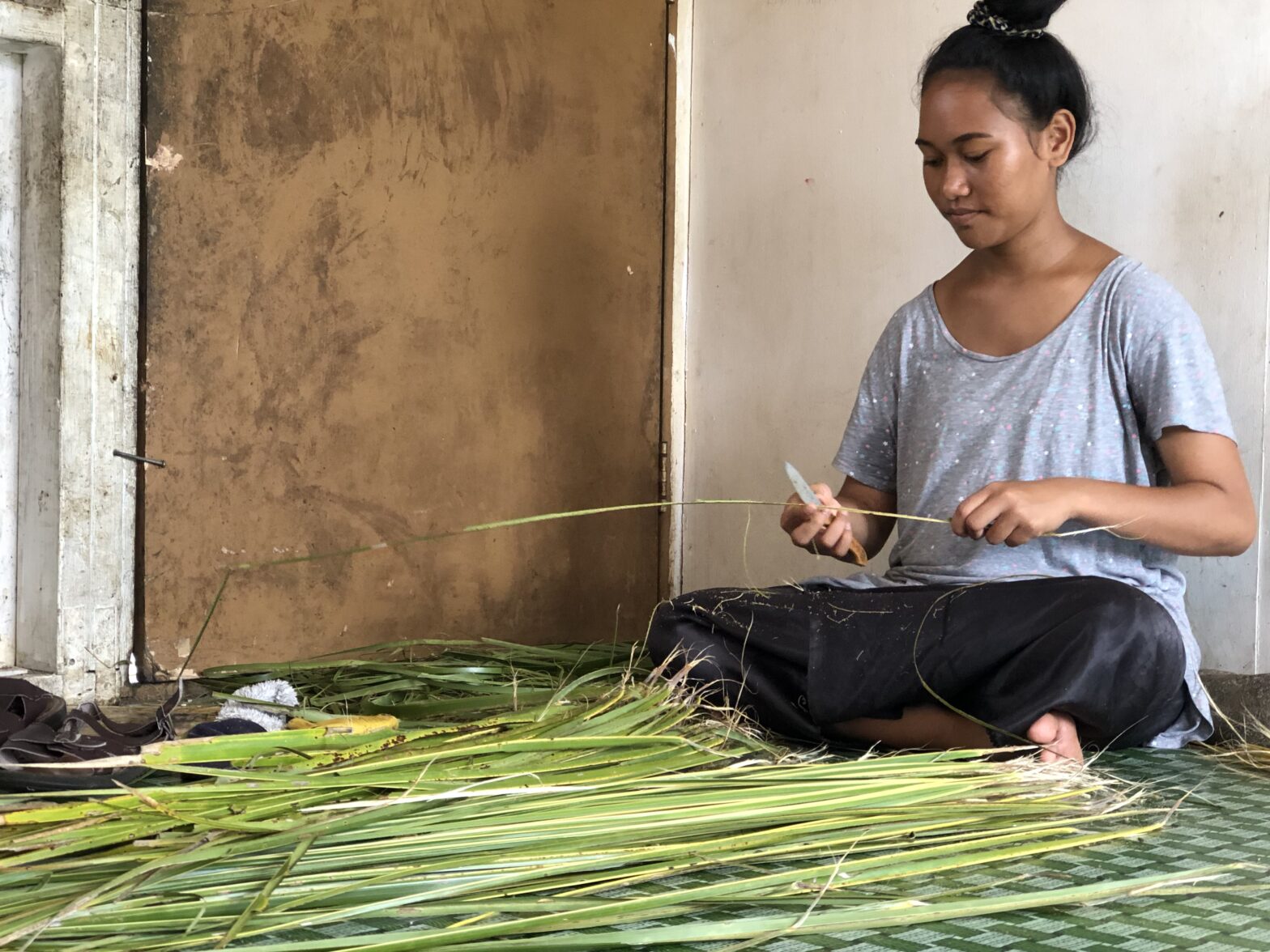“The natural disasters that I have experienced are falling ash and acid rain… thunderstorms, earthquakes, cyclones and the volcanic explosions which cause tsunamis,” lists ‘Eseta Uasila’a from the island of Fotua in Tonga, which is considered the third-most at-risk country in the world.
“The volcanic eruption and acid rain affected our drinking water,” continues Siu Ika from the village of Folaha, on Tonga’s main island of Tongatapu, recounting the after-effects of the disaster unleashed by the Hunga Tonga-Hunga Ha’apai volcano in 2022. “There was no man living here, so there was no one to help clean the water tank and gutters. So, I fetched the water.”
Uasila’a and Ika are among the more than 5,000 Tongans – half women – who participated in the country’s Gender and Environment Survey (GES) in 2022. It’s the country’s first survey of its kind and one of only a handful that have been conducted globally.
The GES found that a shocking 93% of Tongans had experienced three or more disasters in the past 12 months and women were more likely than men to be impacted by: mental health issues (92 versus 85%); loss of income (63 versus 60%); reduced food intake (14 versus 11%); temporary relocation (14 versus 12%); compromised water sources (56 versus 55%); difficulty accessing medical care or hygiene (35 versus 32%); and increased unpaid care burdens (77 versus 74%).
“It quantifies and puts into one document all the things we know and it’s a reminder of what things we really need to act on,” says Uieta Kaufusi, Gender Policy Advisor for the Women’s Affairs and Gender Equality Division (WAGED) of Tonga’s Ministry of Internal Affairs (MIA), who learned about findings at the in-country launch for key government stakeholders, civil society organizations and academics in May 2024. “Whether it’s breaking down silos to improve coordination or provide better quality services to those who need it the most, that’s why it’s so important for us.”
She says the GES is timely as the Ministry is beginning to review the National Women’s Empowerment and Gender Equality Tonga Policy, and findings are already feeding into other policies and activities.
“This will help us better coordinate some of the policy work here in Tonga, so this survey is wonderful!” adds Kaufusi. She says WAGED is currently using GES data in discussions to create a women’s economic empowerment initiative with the ministry in charge of climate change. “When we look at disaster risk-reduction and gender in humanitarian action, these findings will help us to better craft responses and activities across the full spectrum of the gender, humanitarian and climate nexus.”
GES findings are shaping the way WAGED collaborates with the National Disaster Risk Management Office to implement the Disaster Risk Management Policy and deliver joint trainings on gender and protection in humanitarian responses to reduce the vulnerability of those most affected and help local government, civil society, first responders and community leaders identify and respond to their needs during disasters.
Anna Jane Lagi, WAGED Family Protection Act Coordinator, says the GES also provides insight on areas the Ministry needs to explore further, such as the intersections between climate change and disasters with escalating cases of domestic violence.
“The best thing about this survey is that it’s one of the most recent, so it’s very workable for us, in terms of training new staff and planning ahead,” says Lagi. “It also looks at the unpaid work of women and how it has increased in this time. We are seeing what can be triggered during times of emergency, and what the needs are, so we can better coordinate ourselves.”
The GES report was first launched at the 28th global Climate Change Conference (COP28) in November 2023 by Tonga’s Minister of Finance, who advocated for prioritizing its findings in global climate policies.
The report was accompanied by a video about the survey, produced by UN Women and the Tonga Statistics Department (TSD).
